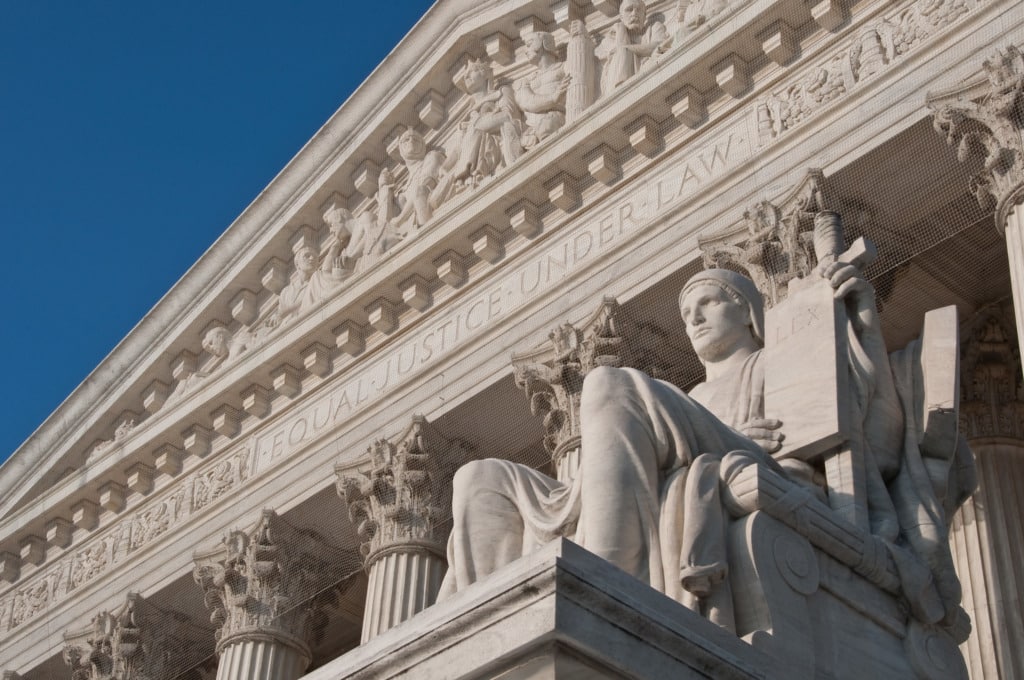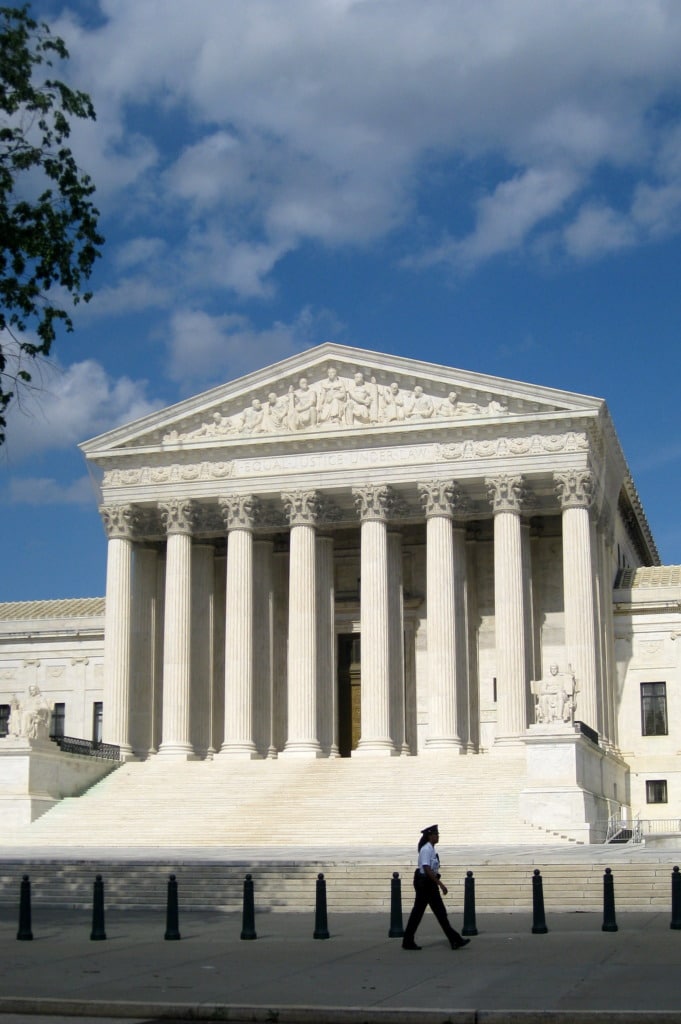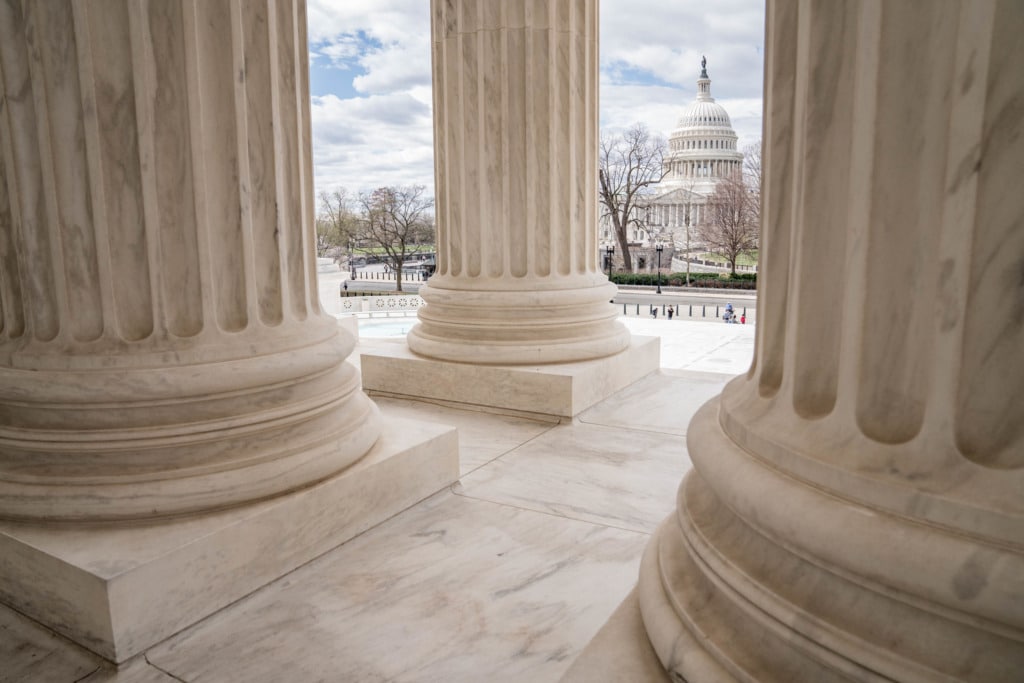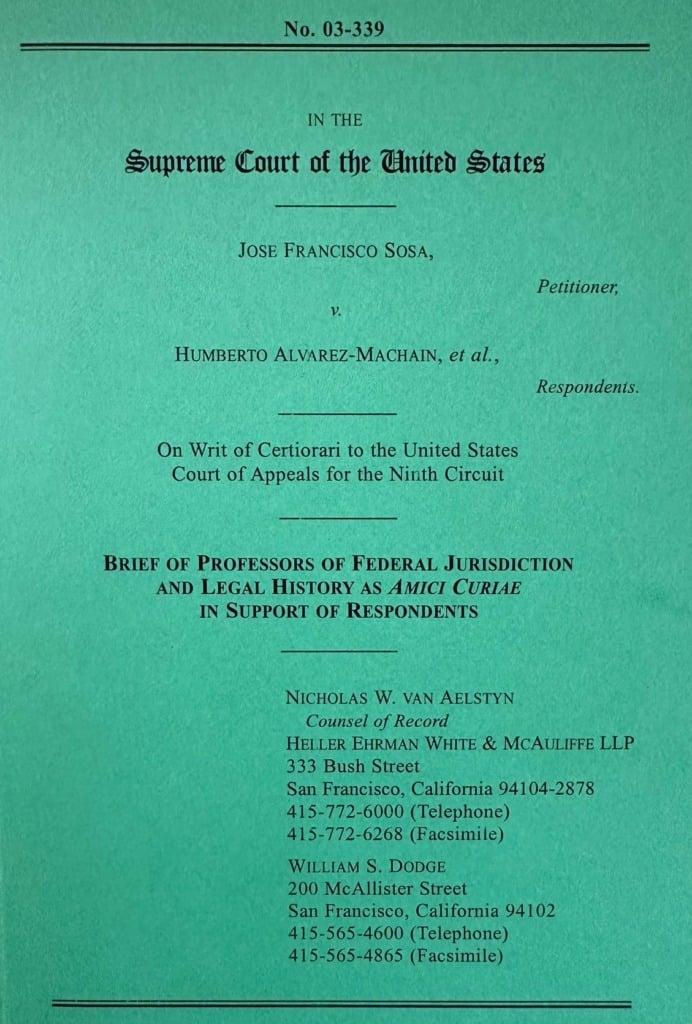Arbitration Enforcement and Consent
This Term, the Supreme Court will hear a case that could have profound ramifications for international arbitration: CC/Devas (Mauritius) Ltd. v. Antrix Corp. Ltd. The petitioners are seeking to enforce an arbitration award they won against a state-owned company in India. The district court enforced the award, relying on the New York Convention and the…
Continue ReadingSupreme Court Grants Cert in Fuld v. PLO
Today, the U.S. Supreme Court granted certiorari in Fuld v. Palestinian Liberation Organization to decide whether the Promoting Security and Justice for Victims of Terrorism Act (PSJVTA) violates the due process clause of the Fifth Amendment. For prior TLB coverage of Fuld, see here, here, here, here, and here. The PSJVTA purports to establish personal…
Continue ReadingHungary v. Simon Offers Supreme Court Stark Choice
(Editor’s Note: This article also appears in Just Security.) On Tuesday, the U.S. Supreme Court heard oral argument in Hungary v. Simon, a case brought by Holocaust survivors under the expropriation exception of the Foreign Sovereign Immunities Act (FSIA). In 1944, Hungary rounded up Jews and transported them by train to death camps, expropriating their property…
Continue ReadingTransnational Litigation at the Supreme Court, October Term 2024
Today is the first day of the Supreme Court’s October Term. This post briefly discusses four transnational litigation cases in which the Court has already granted cert, as well as several others that are in the pipeline and could be decided this Term. Readers can also consult our Supreme Court page. Cases in which the…
Continue ReadingSupreme Court Grants Cert in Smith & Wesson v. Mexico
This morning, the Supreme Court granted cert in Smith & Wesson Brands v. Estados Unidos Mexicanos. As regular readers will know, Mexico sued Smith & Wesson and other gun manufacturers in federal district court of the District of Massachusetts, alleging that defendants design, market, and sell guns in ways they know will arm Mexican drug…
Continue ReadingThe Burden of Proving Foreign Sovereign Immunity
The Supreme Court has granted cert in Republic of Hungary v. Simon and will soon hear oral argument, likely in December. The principal question is how to interpret “property exchanged for such property” under the Foreign Sovereign Immunities Act’s (FSIA) expropriation exception, 28 U.S.C. § 1605(a)(3). But the three issues before the Court also include…
Continue ReadingNinth Circuit Denies Rehearing in Doe v. Cisco Systems
On September 3, 2024, the Ninth Circuit denied rehearing en banc in Doe v. Cisco Systems. The panel had held that Chinese practitioners of Falun Gong could sue Cisco, a U.S. company, for aiding and abetting human rights violations by building a surveillance system for the People’s Republic of China. Judge Patrick Bumatay (joined by…
Continue ReadingWhat Does Overruling Chevron Mean for Transnational Litigation?
For the past forty years, under Chevron U.S.A. Inc. v. Natural Resources Defense Council (1984), courts have deferred to an agency’s interpretation of a federal statute when the statute is ambiguous and the agency’s interpretation is reasonable. On June 28, 2024, the U.S. Supreme Court overturned Chevron. In Loper Bright Enterprises v. Raimondo, the Court…
Continue ReadingThrowback Thursday: Sosa v. Alvarez-Machain
On June 29, 2004, two decades ago, the Supreme Court decided Sosa v. Alvarez-Machain, recognizing an implied cause of action under the Alien Tort Statute (ATS) for violations of human rights norms that are generally accepted and specifically defined. In this post, I look back at Sosa and discuss what has happened in ATS litigation during…
Continue ReadingSupreme Court Grants Cert in Holocaust Expropriation Case
The Supreme Court granted cert this morning in Republic of Hungary v. Simon to consider further questions under the expropriation exception of the Foreign Sovereign Immunities Act. In Republic of Germany v. Philipp(2021), the Supreme Court held that the expropriation exception does not apply to a government’s taking of the property of its own nationals….
Continue Reading







